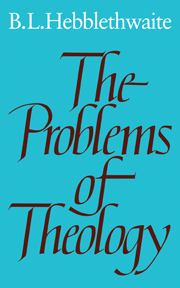2 - Theology and comparative religion
Published online by Cambridge University Press: 30 September 2009
Summary
In this and the next chapter, we are to take further our discussion of the difference between theology and religious studies. Religious studies include both the comparative study of religions and the so-called scientific study of religion. We reserve the latter – the approaches of psychology, anthropology and sociology – for the next chapter, concentrating here on comparative religion. Our purpose is not to give a detailed account of its methods and aims, but rather to examine its claim both to be objective and to understand its data. We shall then discuss the relation between theology and comparative religion, examining each from the other's point of view. Finally we shall consider the vexed question of criteria of truth in the comparative study of religion.
The phenomenology of religion
In an attempt to look at the world of religion in all its fulness, without presupposing commitment to any particular religious beliefs, scholars have developed a discipline known as the phenomenology of religion. Indeed the phenomenological method may be thought of as the characteristic method of the comparative study of religion. This term ‘phenomenology’ has a long history in philosophy, but it is borrowed particularly from the German philosopher, Edmund Husserl (1859–1938), who used it for an allegedly presuppositionless approach to things simply as they appear in human consciousness. The method involves bracketing off all questions of truth and reality. Husserl claimed that, if one concentrates on appearances (phenomena) in all their fulness, one will be able to grasp intuitively the essence of whatever topic is under discussion. Applied to religion, this method involves bracketing off ultimate questions about God, and concentrating simply on the human phenomena of religious practice, experience and belief the world over.
- Type
- Chapter
- Information
- The Problems of Theology , pp. 23 - 43Publisher: Cambridge University PressPrint publication year: 1980

